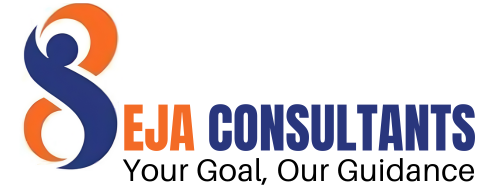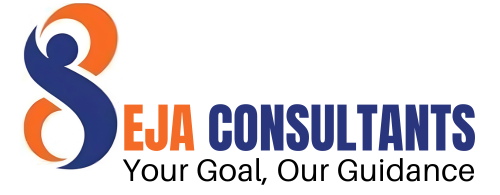
You have been asked for an interview! Congratulations! This indicates that your cover letter and CV made an impression, and recruiters and HR managers want to learn more about you. A job interview may be an extremely stressful experience for many people. The key to overcoming anxiety and having a great interview is preparation. Continue reading to learn more.
No matter how good the job market is, it is still hard to prepare for an interview.
Even if it’s a job seeker’s market, preparing for an interview still entails doing your study, practising, and understanding how to answer—and ask—the questions. Preparing for an interview requires researching the position and the organization and carefully reviewing your replies to interview questions. You must also prepare for what will happen during and after the interview in addition to your pre-interview preparation. Remember that you seldom get a second chance to create a first impression, so do your best to prepare for your interview ahead of time.
The finest practices for preparing for and acing interviews – hiring professionals’ advice
Here are the top measures you can take to be ready for and ace your interviews, according to hiring professionals, whether you’re switching jobs, returning to the workplace, looking for a new challenge, or searching for higher income and benefits.
Research well about the company
Any interview process begins with research, so do that first. Knowing as much as possible about how the firm is operated and arranged can make you appear more knowledgeable. The study will also assist you in demonstrating your interest in that particular employer and clarify whether it’s the type of place you genuinely want to work. “It’s crucial to remember that you’re interviewing them just as much as they’re interviewing you,” says job adviser Stacey Perkins.
You should first learn everything you can about the company interviewing you. This information allows you to better determine if your values align with the company’s and shows the interviewer that you are serious. Examine the firm’s website and annual reports, and attempt to read company bulletins. Learn about their organizational structure, long-term aims, and philosophy. Keep up with any corporate or industry news, and utilize social media to see what image the firm wishes to project.
The more knowledge you can gather, the more prepared you will be. Applicants should spend time on the company’s website learning about the company’s goals and priorities.
Examine the job description
Scrutinizing the job description is very crucial for mastering any interview. Types of questions can be determined by considering the job requirements. Examine the terms and phrases used by the employer to describe their expectations. The more closely you can match your talents and credentials to the job role, the more likely you are to ‘wow’ the interviewer. The questions that the interviewer could ask are also hinted at in the job description.
Prepare your questions (what questions to ask the interviewer after the interview) ahead of time and ask them during the interview. Remember why you applied in the first place and leverage that knowledge in your interview. Examine your CV and cover letter again; the employer invited you for a purpose, so make sure you know your best assets when you walk through the door.
Make a list of potential interview questions
Make a list of frequently asked interview questions for the position and prepare informed solutions. Prepare excellent responses to questions that will help you to highlight your skills and interest in the role. Consider including the following general inquiries in addition to position-specific inquiries:
– Tell me about yourself.
– Why are you searching for a different job?
– Why do you seek this position?
– Why should we recruit you?
– What are your strengths and weaknesses?
– What inspires you?
Practise what you intend to say
Research the most popular interview questions and then practise your responses. Include examples from your experience demonstrating why you are the best candidate for the job. If you have any special anecdotes or arguments to make, write them down and see how you can incorporate them into these replies. Ask a friend to help you prepare and practise a mock interview to boost your confidence.
You should be able to respond to the questions “Tell me about yourself” and “Why do you believe you’d be a good fit for this role” at all times. You must sell it since your employer is unaware.
Don’t remember your responses so well that they seem prepared, but have a good sense of what you’re going to say. When questioned, you want your response to be informed and natural. Be open to additional queries and truly understand what you can give the firm.
Choose your professional attire
Another important aspect of how you should be ready for a hiring process is what you wear. Once you have decided what attire you want to wear for a job interview, make sure it is clean and ironed and that you have the appropriate accessories and shoes. It doesn’t hurt to test the dress ahead of time to ensure that everything fits properly and that you look beautiful. Then, save your attire on the day of your interview and have it ready.
Always arrive on time
Allow adequate time to arrive and account for traffic. It’s fine to arrive up to 10 minutes early, but no more. Otherwise, the interviewer can be unprepared for you. Familiarize yourself with the location map provided by the firm. Utilizing Google Maps, you may confirm the location’s instructions. If you get lost or are late for your interview, bring your interviewer’s phone number.
Plan your schedule and choose a method of transportation based on the commute’s length and time.
Get comfortable with selling yourself
Interviews are stressful in general, and selling oneself is a special difficulty. It may be difficult and embarrassing to converse about oneself for many people, whether you dislike being the focus of attention or don’t want to come across as self-aggrandizing.
Career coaches advise being ready to explain your contribution to the team’s worth in detail and to back it up with specific examples. Be detailed in interviews. Don’t just tell, show. Share examples and stories of your accomplishments. Also, when discussing a project you did, explain the impact it had. Perkins suggests the STAR technique, which involves identifying the circumstance, task, action, and outcome.

